Premium Only Content
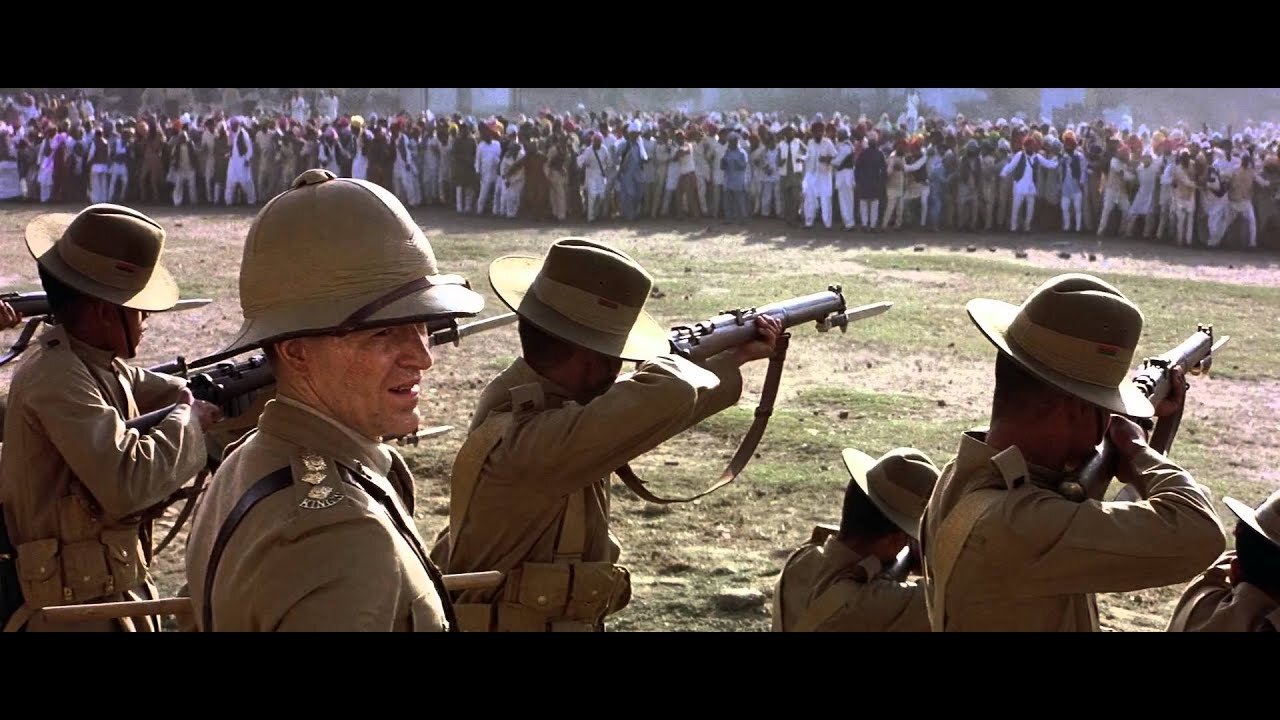
HOLY SPIRIT OF INDIA ! = ACT 1 - SCENE 1 = BRITISH EMPIRE AMRITSAR MASSACRE ! HIGH DEFINITION
BRITISH EMPIRE MASSACRES OF INDIAN PEOPLE & THE RISE OF MAHATMA GANDHI AND NON-VIOLENT NON-COMPLIANCE TO BRITISH CRUEL AND UNJUST RULE.
/=/
On April 13, 1919, British troops opened fire on a peaceful protest in Amritsar, India, killing many hundreds of unarmed native Indian civilians.
/=/
This event is known as the Amritsar Massacre, and it was a turning point in Indian history.
/=/
The massacre galvanized the Indian independence movement, and helped to create a united front against oppressive and repressive British colonialism.
/=/
The British had been in control of India for nearly two centuries, when the Amritsar Massacre occurred.
/=/
During that time, the British had managed to amass a large amount of wealth and control over the country, severely impoverishing the country, sending hundreds of millions of its people into poverty and famine; and killing upwards of two hundred million victims … !
/=/
The British rulers were not content with simply ruling India; they also sought to remake it in their own image.
/=/
They did this by imposing Western values and ideas on the Indian people, in an attempt to destroy their beautiful culture and rich history.
/=/
This was particularly evident in the education system, which was designed to produce so-called ‹ good citizens of the British Empire. ›
/=/
The Indians suffered greatly under their heavy-handed rule.
/=/
There were many uprisings against British rule, but alas none were successful in overthrowing their ruthless colonial power and exploitation.
/=/
The most serious challenge to British rule came from the Sepoy Mutiny of 1857.
/=/
This revolt was started by Hindu and Muslim soldiers in the British army, who were upset about being forced to use cartridges that were greased with pork and beef fat.
The mutiny was quickly put down, but it showed the potential for resistance to British rule.
/=/
After the completion of World War One in 1918, the British Empire was in a weak position. The war had drained the resources of the Empire, and there was widespread discontent among the colonized peoples.
/=/
The key events leading up to the massacre began in 1918, when the British implemented a series of repressive measures in India, in response to rising nationalist sentiment.
/=/
These measures included banning public meetings, censoring the press, and jailing political leaders without trial.
/=/
In India, widespread discontent manifested itself in the form of protests against the Rowlatt Acts. These were a set of laws that allowed the government to arrest and imprison people without trial. The government curtailed freedom of speech and assembly to prevent violence or other disruptions.
/=/
The Rowlatt Acts outraged the Indian National Congress, which was the leading nationalist party at the time - and included such leaders as : Muhammad Ali Jinnah, Motilal Nehru, and Mahatma Gandhi.
/=/
The Congress called for a nationwide protest against the Acts on April 13, 1919.
/=/
The British authorities in India were concerned about the possibility of violence, and sought to prevent the protest from taking place. They did this by declaring a curfew and banning public meetings. When these measures failed to stop the protests, they dispatched troops to disperse the crowds.
/=/
The British were facing increasing unrest from their colonies around the world. This made them nervous about potential uprisings in India. The Lieutenant-Governor of Punjab, Michael O'Dwyer, felt that the British were the true rulers of India. He was also extremely concerned about the increasing cooperation between Hindus, Muslims, and Sikhs in Punjab at the time.
/=/
In an attempt to minimize civil unrest in the Punjab region, the British authorities banned nationalist leaders from traveling there, including Gandhi himself.
/=/
On April 13, 1919, a large crowd of unarmed civilians gathered in Jallianwala Bagh to protest against the Rowlatt Acts. The protest was peaceful and there was no violence. However, the British authorities saw it as a potential threat to their control over India.
/=/
Colonel Reginald Dyer, who was born and raised in India, led a contingent of soldiers toward the plaza. When their armored car, which was armed with a machine gun, could not fit into the little passageway leading to the plaza, the soldiers had to leave it behind.
/=/
The decision was made to break up the crowd by lethal force. On orders from Colonel Reginald Dyer, troops opened fire on the crowd.
/=/
The protesters were unarmed and posed no threat to the British troops. However, General Reginald Dyer ordered the troops to continue firing for ten minutes.
/=/
People began to leap into a water well, and push through the limited gates that provided exits, to save themselves, and they were crushed by others who followed. Many of them suffocated or perished when they were overcome with people running over them.
/=/
The exact number of people wounded or killed is unknown. Early estimates ranged from 291 dead (as alleged by British officials) to well over 1,500 (as stated by the Indian National Congress report.)
/=/
Following the bloodshed, Dyer, became known as the ‹ Butcher of Amritsar ›
/=/
The consequences of the massacre were far-reaching. The incident caused widespread outrage among Indians and increased support for the independence movement.
/=/
Soon after this bloody massacre, Mahatma Gandhi rose to power, and through non-violent non-compliance enabled India to defeat British rule and regain its independence as its own sovereign country once again.
/=/
/=/
/=/
FAIR USE - Section 107 of the Copyright Act 1976
This is a non-profit video that I personally composed solely for the purpose of study, review, research, self-expression, experimental analysis, creative research, humorous contrasting, cultural and educational philosophy, and basically for the love of artistic creativity itself, without any intention for any commercial uses whatsoever, and fully and absolutely for non-profit public display.
This video is for educational purposes only; and is offered freely to the public.
In composing this audio-visual film video, I am respecting the Copyright Disclaimer Under Section 107 of the Copyright Act 1976, whereby allowance is made for fair use, for purposes such as criticism, comment, news reporting, teaching, scholarship and research.
Fair use is a use permitted by copyright statute that might otherwise be infringing.
Non-profit, educational, or personal use, thankfully tips the balance in favor of fair use, thus promoting both the original work and other possible creative derivatives.
I made use of images in this composition that do belong to other film and music production firms. However, such a composition is unique and original in its full assembly, and is for educational and non-profit purposes only.
The original film production images and original music melodies in this film remain the property and copyright of its rightful owner, or owners.
I claim no ownership whatsoever on any of the materials I have used in creating this new audio-visual composition, except those that are my own to improve the state-of-the-art, and that I offer freely to the public worldwide.
Long Live India !
Sincerely,
Teri'irere Ito'arai
Film Composer
The Holy Spirit of India !
-
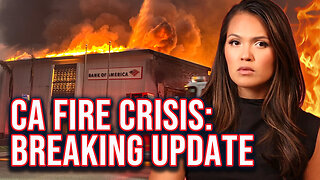 1:12:39
1:12:39
Savanah Hernandez
2 hours agoLA Fire Dept withheld 1,000 firefighters ahead of the Palisades Fire
19.9K6 -
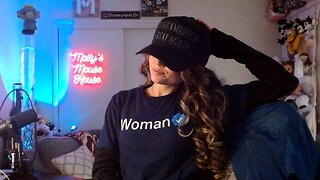
Mally_Mouse
3 hours agoLet's Yap About It - LIVE!
26.5K1 -
 9:25
9:25
Silver Dragons
3 hours agoTop 3 Types of Silver ALL Stackers NEED to Be Buying
20.9K1 -
 1:24:04
1:24:04
Russell Brand
5 hours agoPfizer’s $1,000 Bribe to Push Childhood Vaccines – SF520
119K109 -
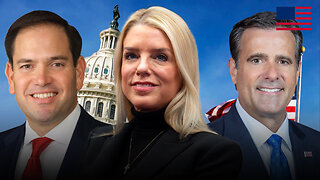 1:57:55
1:57:55
The Charlie Kirk Show
4 hours agoThe Confirmation Marathon | Davis | 1.15.2025
124K38 -
 1:08:25
1:08:25
The Kevin Trudeau Show
6 hours agoBrainwave Secrets That Attract Millions | Ep. 83
14.5K2 -
 8:52
8:52
Guns & Gadgets 2nd Amendment News
7 hours agoSELF DEFENSE: How Would You React?
13.5K4 -
 24:03
24:03
Stephen Gardner
1 day ago🔥Steve Bannon VOWS TO DESTROY Elon Musk's relationship with Trump!!
70.3K141 -
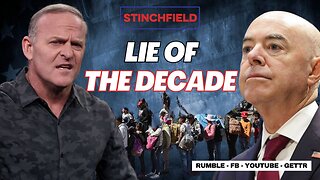 53:20
53:20
Grant Stinchfield
4 hours ago $3.32 earned"Most Secure Border in Years," Team Biden Fiction on Full Display
41.2K9 -
 2:57:22
2:57:22
The Dana Show with Dana Loesch
4 hours agoTRUMP'S PICKS SQUARE OFF | The Dana Show LIVE On Rumble!
25.9K3